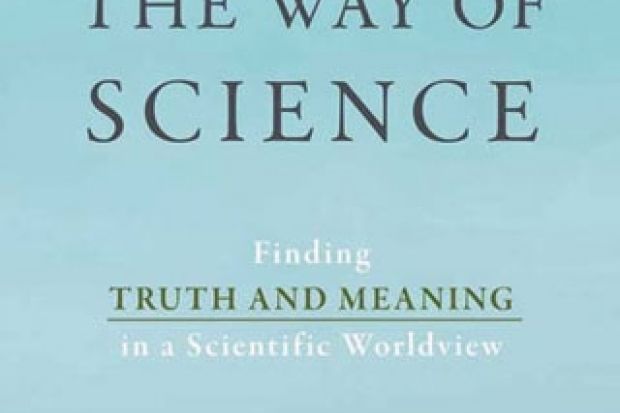Dennis Trumble has two distinct aims. The first is to invite readers to understand how scientific thinking works. He expounds the scientific method in terms of the interplay between observation and hypothesis, saying that without exception observation always comes first. He is passionate that everyone should acquire the intellectual skills that characterise good science, testing theories against empirical data. “Everyone needs to understand how science works,” he writes. “The problem is that the scientific process and critical thinking are too often viewed as an occupational speciality rather than an essential life skill.”
I was expecting, therefore, that much of the book would be taken up with an exposition of the way of science. After a promising start, however, Trumble gives almost no deeper description of how science is actually pursued by practitioners. Darwinian evolution gets at least four chapters, and Darwin gets half a column of references, but there is little description of his scientific method and how it reflects his genius. It was truly remarkable that, without the combination of mathematics and repeatable experiments that characterises so much modern science, Darwin was nevertheless able to formulate a mechanism that has for ever changed the way educated people think. But much, perhaps most, science does use repeatable experiments, usually with mathematical analysis. Quantum theory involves a change in thinking no less radical than natural selection, and yet it receives only half a page. Niels Bohr, Werner Heisenberg, Erwin Schrödinger and Paul Dirac between them get zero index entries. Dirac’s prediction of the positron, like Albert Einstein’s prediction of relativistic phenomena, did not arise from observations but from mathematical reasoning. Einstein was fully capable of deductions from observations, as in his various derivations of Avogadro’s number published in 1905, but his theory of special relativity, published in the same year, was based on postulates that he derived from logical inconsistencies in previously accepted theory. “Subtle is the Lord,” he wrote of quantum theory. Subtle, too, is scientific method.
Trumble’s second aim is to show that religious faith is incompatible with scientific method: “one would think that the perils of faith-based reasoning would be something that every human being would take great pains to avoid”. An earlier review of The Way of Science summarised, “Trumble aims - without histrionics - to urge the religious towards science as a source of meaning.” Trumble writes that “the glaring facts of modern-day life should nonetheless make it blindingly obvious to every educated person on the planet that basing our moral sense on anything other than tangible reality is fraught with the worst kind of danger”. Without histrionics? No one would dispute that science is necessary for moral enquiry. Science can indeed shed light on ultimate reality and on moral values, in more ways than Trumble describes.
He summarises the link between scientific knowledge and moral reasoning in italics: “In order to have a true sense of right and wrong one must first know what is true.” He then asserts that science provides the sole means of discovering truth. “The sine qua non of scientific inquiry is simply this: intellectual honesty.” Just so, but scientific enquiry does not have a monopoly on intellectual honesty. Every discipline prizes intellectual honesty. Christian theology, together with theologies of other faiths, shares with science a passion for the truth, and recognises, in common with many other disciplines, that discovering the truth requires more intellectual tools than scientific method alone.
Because Trumble rejects all religion undiscerningly, rather than analysing the deep issues, this book is unlikely to be influential. If it were, it might have the unintended consequence for those whose faith in God is stronger than their faith in science of deflecting them from progress in scientific knowledge, and possibly from careers in science. That would be unfortunate. C. A. Coulson, the distinguished Oxford mathematician and theoretical chemist, wrote that when you encounter a hard problem in science, the response should not be to invoke God as an explanation but rather to do better science. When you encounter a hard problem in theology, the response should not be to invoke science as the ultimate source of wisdom, but to do better theology. By all means let us promote, as effectively as we can, a wider appreciation of scientific method. It can never be a replacement for faith, but for people of faith it can provide an indispensable enhancement.
The Way of Science: Finding Truth and Meaning in a Scientific Worldview
By Dennis R. Trumble
Prometheus, 346pp, £12.60 and £14.39
ISBN 9781616147556 and 7563 (e-book)
Published 16 July 2013
Register to continue
Why register?
- Registration is free and only takes a moment
- Once registered, you can read 3 articles a month
- Sign up for our newsletter
Subscribe
Or subscribe for unlimited access to:
- Unlimited access to news, views, insights & reviews
- Digital editions
- Digital access to THE’s university and college rankings analysis
Already registered or a current subscriber? Login




